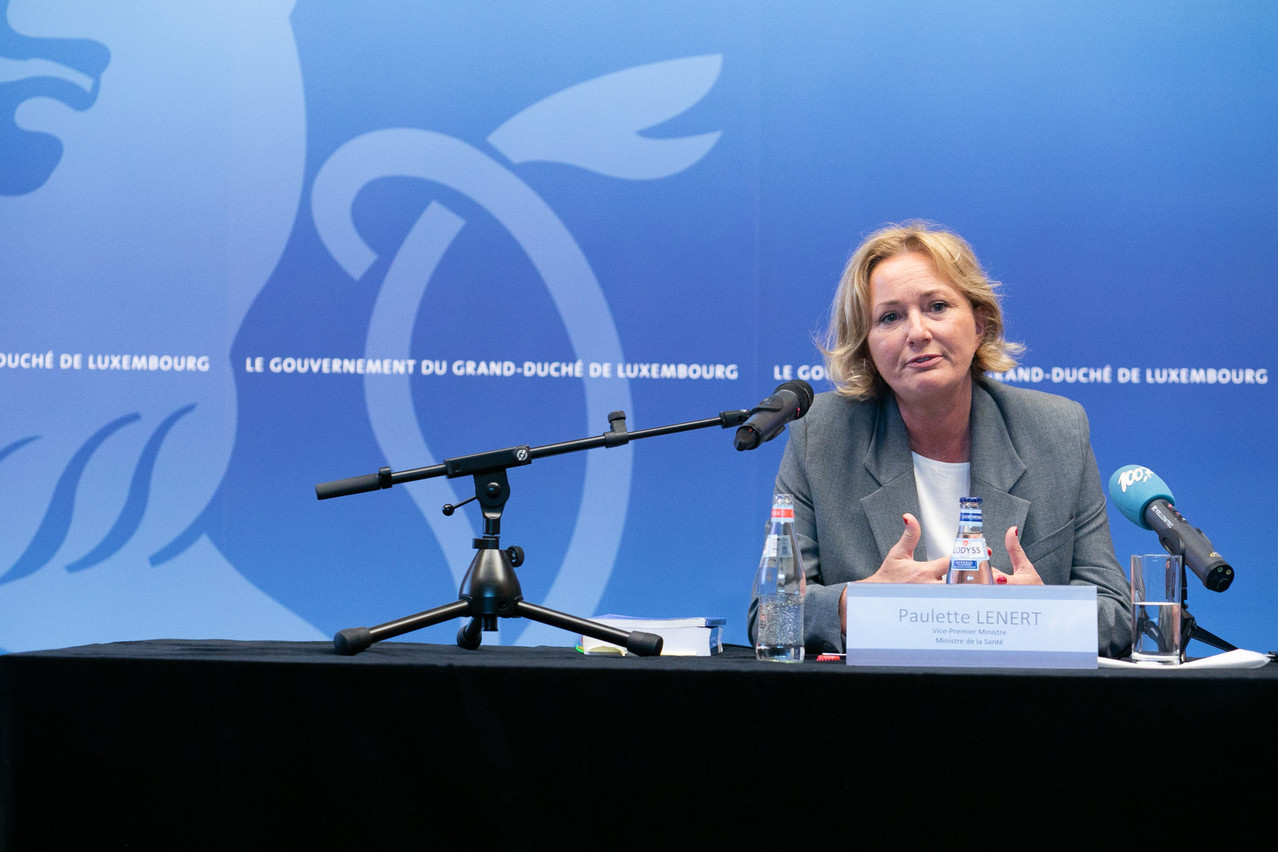“It is the entire Luxembourg health system that is at stake,” said health minister Paulette Lenert. during a press conference on Wednesday, where she was accompanied by social security minister Claude Haagen (LSAP). Lenert is not taking the ambulatory shift lightly.
Certain activities are already accessible in branches outside the hospital, namely imaging, non-surgical day hospitalisation, dialysis or oncology treatments. The four hospital centres in Luxembourg (CHDN, CHEM, HRS and CHL) have a total of six such branches. The ten additional branches planned to open are supposed to bring treatment closer to patients and bring “an ease to their daily life,” said Lenert.
Ten new sites
While “the trend in health care is towards ambulatory care”, according to Lenert, the objective is, first, to promote the practice of ambulatory care on existing sites and on the future sites.
One request is already underway: that of the CHL for the famous MRI in Potaschbierg, which has been . “All the players have shown a willingness to negotiate a regularisation and a regularisation is in sight,” the minister insisted, despite the confusion of recent days. “I received a request from the CHL last Friday to operate this site on the basis of an agreement in principle, or a letter of intent, which has been signed by both partners,” she added.
Two other such partnerships are expected to be established in the medium term. The CHEM in the south of the grand duchy and the Robert Schumann hospitals (HRS) have expressed interest in two dedicated sites in Mondorf and Junglinster respectively.
Collaboration contracts
To encourage the outsourcing of hospital activities, a new feature was also announced: collaboration between a hospital and a group of private doctors, through a standard collaboration contract. Several groups of doctors are already interested, the minister said. But this “new form of partnership” will have to remain “under the cover of the requirements that we currently have in the hospital”, said Lenert.

"We do not want to see the development of structures where the same profession sets up outside the hospital, is entitled to the same rates, but does not have the same constraints," says Paulette Lenert. (Photo: Matic Zorman/Maison Moderne)
The aim is obviously not to create intersectoral competition by opening up certain activities to the outside world. “We want to ensure that the same guarantees are given in terms of standards, in terms of salary guarantees, in order to maintain a fair level of working conditions,” explains the minister, who adds: "We do not want to see the development of structures where the same profession sets up outside the hospital, is entitled to the same rates, but does not have the same constraints. The obligation to be on call, to work at night and possibly at weekends are constraints that do not exist in private clinics or private practices, for example," the minister said.
Lenert also brought up a longstanding discussion about the possible creation of doctors’ companies. While doctors would remain responsible for their professional activities, this would allow them to have a better work-life balance, and to set up shop sooner in life. Currently, the cost of opening a praxis is too high for young independent doctors, Lenert, who discussed the subject with social partners, said.
The creation of such companies would also allow different specialists to come together in a pluridisciplinary cabinet. Nurses or midwifes could, for example, create a company with GPs or gynecologists.
Maintaining the system
In fact, if this trend towards ambulatory care is explained by the search for greater comfort for the patient--by seeking to avoid hospital stays when they are not necessary--and improved safety--in particular against nosocomial infections--there are also the economic considerations. "Each inpatient stay costs money, and resources are not inexhaustible, so we are trying to promote a geographically distributed supply of care that we can offer outside the walls of hospitals," explains the Minister.
But the ultimate objective remains to preserve the principles of the existing model: "We have a very specific system, very expensive, where everyone is entitled to the same benefits, and where every doctor who sets up practice in Luxembourg is automatically affiliated to the CNS. We are trying to maintain our system, which ensures social equity, which is also a key element for social peace. But all this has a cost. And it has to be controlled. "If we want to maintain this good quality offer, which is accessible to all, we have to control the costs," admits the minister. But at the same time we have to try to maintain the quality. "Our system is a whole and we want to maintain it in its entirety," says Paulette Lenert.
Additional reporting by Tracy Heindrichs.
This story was first published in French on . It has been translated and edited for Delano.
